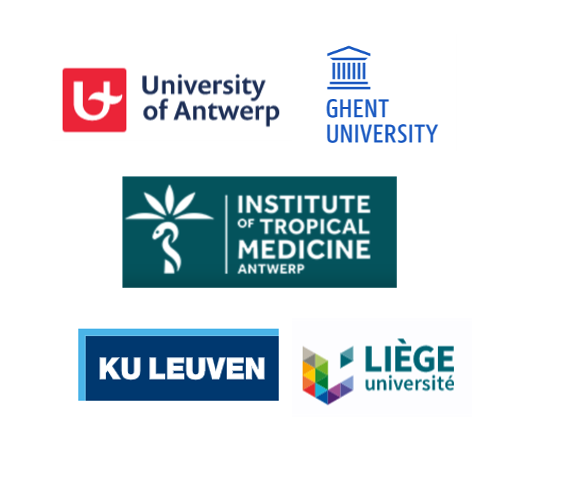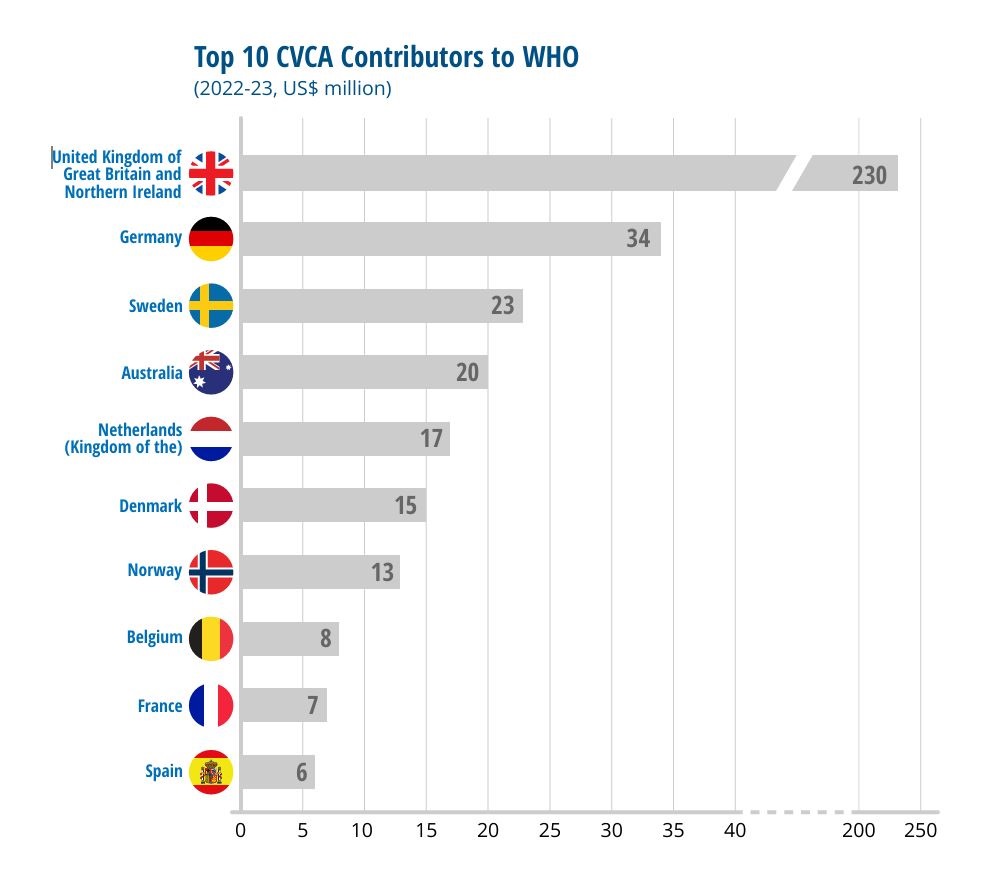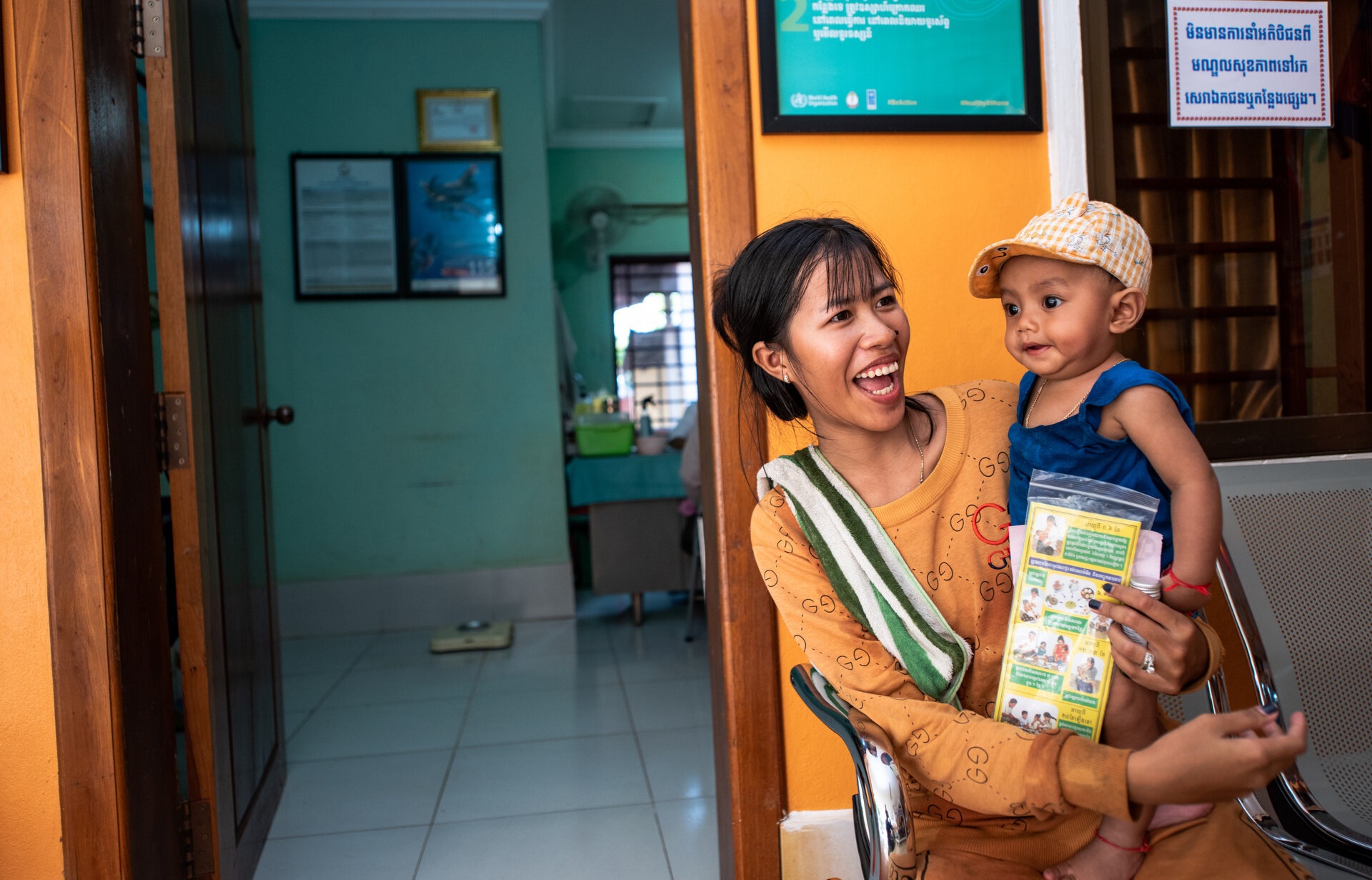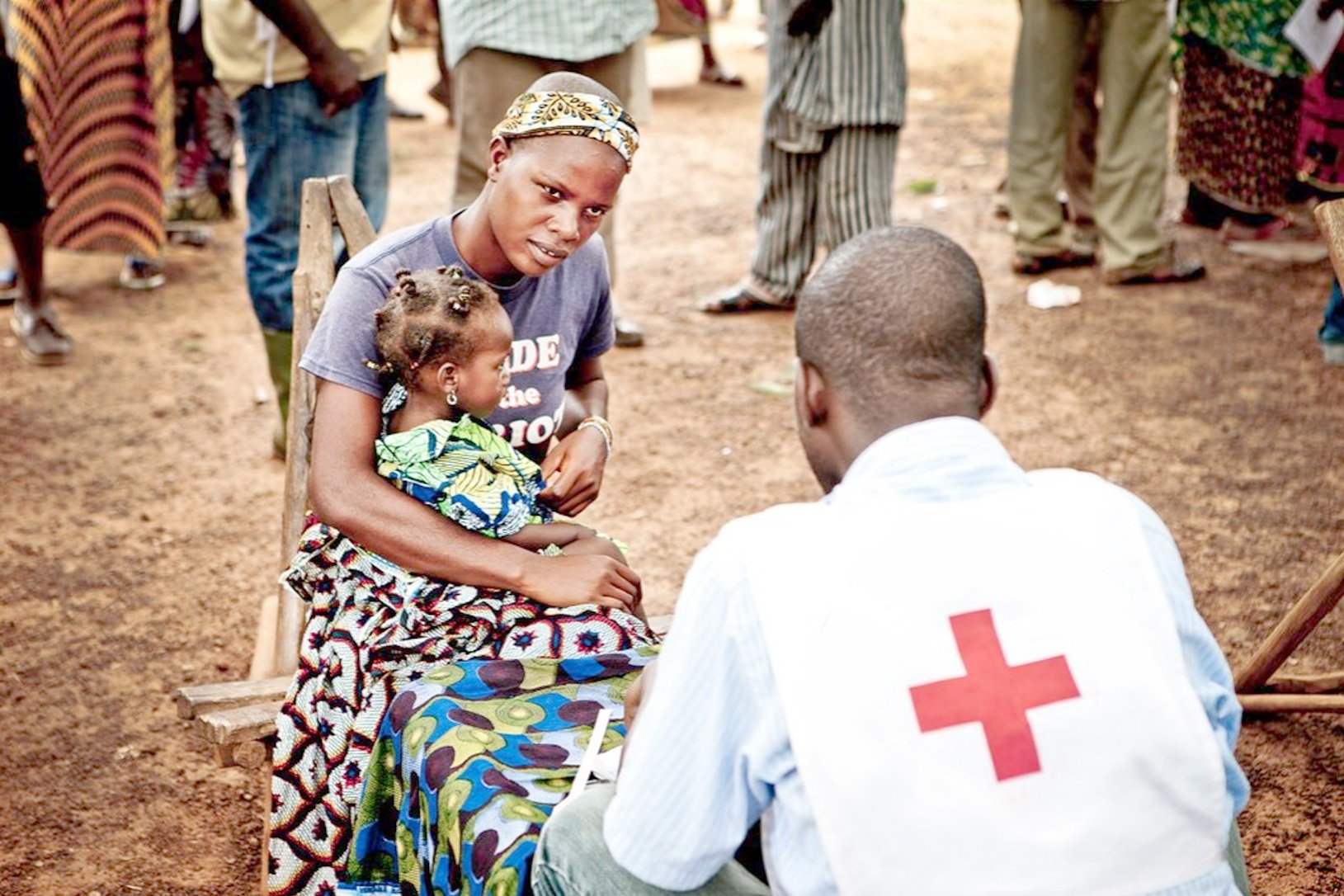
Belgium
Partner in global health
Midwife Rahmi performs a prenatal ultrasound to check the health of Inawati's baby at the Pala Island Village Health Post, South Sulawesi, Indonesia
This content was last updated on 28 February 2025.
A champion of good donorship
The Government of Belgium has taken a leading role in global health, working together with WHO to achieve equitable access to health care for all people everywhere, especially those who are most vulnerable.
The Federal government of Belgium and Flemish and Wallon governments have demonstrated a long-term commitment to support the following global health priorities: reinforcing health systems and universal health coverage, ensuring equitable access to quality health products including vaccine equity such as the mRNA technical transfer hub; the fight against and research to communicable diseases and neglected tropical diseases, particularly African trypanosomiasis; and sexual and reproductive health and rights. Belgium is a strong supporter of the WHO Health Technology Access Programme (HTAP), successor of the COVID-19 Technology Access Pool (CTAP initiative), that is set up to facilitate timely, equitable and affordable access of wider range of health products by boosting their supply through geo-diversified production.
In addition to its support to technical programmes, Belgium is a steadfast defender of WHO’s agenda to ensure that the Organization is fit for purpose and well resourced to achieve the ambitious Fourteenth WHO General Programme of Work calling for healthy lives and well-being for all ages.
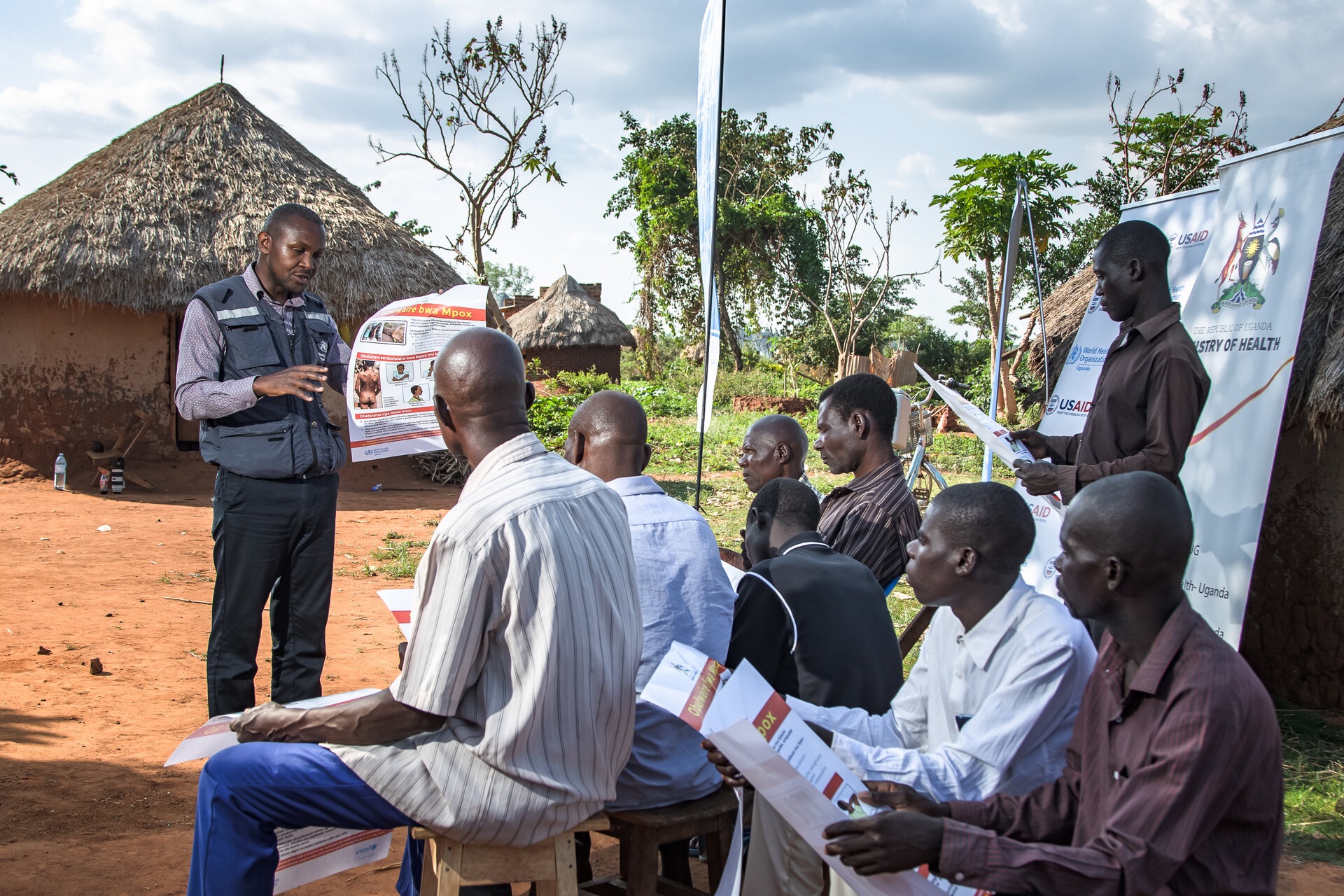
Dr Kenneth Kabali, WHO Field Coordinator for Busoga Sub-region sensitizes the community on mpox in Mayuge district, Eastern Uganda.
Access to medicines
In December 2021, the Government of Belgium and WHO signed a €8 million multiyear contribution agreement for the period 2021–2025 to support increasing global equitable access to health products and health technologies. Over the past three years, the grant has achieved significant progress. The initiative has facilitated technology transfer and sustainable local production through the mRNA Technology Transfer Programme (mRNA TT) and the Health Technology Access Programme (HTAP), the successor of the COVID-19 Technology Access Pool (C-TAP).
Preclinical studies have validated the immunogenicity, efficacy and safety of the Afrigen technology platform, demonstrating that the mRNA platform is effective. A key milestone in the project was the successful transfer of this technology from Afrigen to Biovac at the beginning of 2024, a crucial step towards empowering low-and middle-income countries (LMICs) to independently produce vaccines. The technology transfer will extend to the 14 programme partners, with completion expected by the end of 2025.
Completing the operating model of the mRNA TT Programme, HTAP has secured a license which is expected to benefit sublicensed manufacturers by expanding market opportunities and enabling the manufacture of diagnostics for COVID-19 but also for other diseases such as HIV, malaria, syphilis, and hepatitis C.
Both programmes have evolved post-pandemic and now operate as complementary models under a unified HTAP mission, workplan and programme management framework. Additionally, the implementation of the mRNA TT Programme is reinforced by the efforts on regulatory systems strengthening, local production and assistance and the access 'ecosystem' (i.e., fair pricing, List of Essential Medicines, Essential Diagnostics List, List of Priority Medical Devices, and controlled medicines), which are funded by the same Belgium-supported grant.
Thanks to the Belgian grant, WHO has built a strong foundation to continue implementing these innovative approaches throughout 2025 – the final year of the grant.
WHO collaborating centres in Belgium
There are eight WHO collaborating centres in Belgium, working on a wide range of public health challenges:
- WHO Collaborating Centre for the Prevention and Control of Infectious Diseases, University of Antwerp
- WHO Collaborating Centre on Family Medicine and Primary Health Care, Ghent University
- WHO Collaborating Centre for Research on Sexual and Reproductive Health, Ghent University
- WHO Collaborating Centre for the monitoring of antheliminthic drug efficacy for soil-transmitted helminthiasis, Ghent University
- WHO Collaborating Centre for HIV/AIDS Diagnostics and Laboratory Support, Institute of Tropical Medicine, Antwerp
- WHO Collaborating Centre for Research and Training on African Tripanosomiasis diagnostics, Institute of Tropical Medicine, Antwerp
- WHO Collaborating Centre for Human Resources for Health Research and Policy, Katholieke Universiteit, Leuven
- WHO Collaborating Centre for Epidemiology of Musculoskeletal Conditions and Aging, University of Liege.
